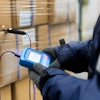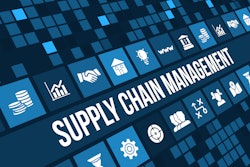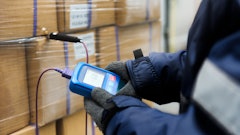
The U.S. Department of Justice (DOJ) announced updates to its Corporate Whistleblower Awards Pilot Program, expanding its focus to include tariff evasion and customs fraud as priority areas. Announced on May 12, these changes reflect the Criminal Division’s commitment to strengthening enforcement against violations of U.S. customs laws and tariff regulations. These changes are consistent with the administration’s goal of increasing revenue through tariffs.
The revised program encourages individuals and corporations to self-disclose violations, offering incentives such as potential declinations of prosecution for those who come forward. This move aims to bolster compliance by rewarding cooperation with the DOJ, emphasizing that self-disclosure is critical to receiving the most favorable outcomes, such as reduced penalties or non-prosecution agreements. Individual whistleblowers may also be eligible for a monetary reward.
A key component of the overhaul is the enhanced role of whistleblowers in reporting customs fraud, particularly through the False Claims Act (FCA). The DOJ is leveraging the FCA to pursue cases involving tariff evasion. Whistleblowers can play a pivotal role by exposing fraudulent practices, such as misreporting a product’s country of origin or transshipping goods through lower-tariff countries to avoid higher duties.
DOJ’s revised self-disclosure program also contains a 120-day window for companies who receive an internal whistleblower report to self-report the misconduct to DOJ. Companies that do so may be eligible for a presumption of declination under DOJ’s self-disclosure policy. This structured timeline encourages timely self-reporting while aligning with the DOJ’s broader enforcement priorities, which include procurement fraud and immigration violations alongside tariff and customs issues.
Industry stakeholders should take note that the whistleblower program is not limited to situations where a company insider discovers and reports fraud. The program can be used as both a sword and a shield. Defensively, a company may seek to get ahead of its own criminal exposure by making a voluntary self-disclosure that will likely result in leniency from the government. Offensively, however, companies are increasingly evaluating whether they can gain a competitive edge by blowing the whistle on competitors who may be engaging in questionable behavior.
Take the case of United States ex rel. Valenti v. Tai Shan Golden Gain Aluminum Products Ltd., for example. In this case, three companies settled a False Claims Act case alleging a scheme to evade customs duties on the import of aluminum extrusions from China. The companies avoided the higher duties applicable to China by transshipping the goods through Malaysia. The case was initiated not by an internal whistleblower, but by a competitor who had discovered the fraud. The competitor earned $550,100 as his portion of the settlements.
Use of the False Claims Act in customs-related enforcement will intensify in the near future. Recent cases highlight this increased focus. In United States ex rel. Lee v. Barco Uniforms Inc., et al., for example, the DOJ intervened in a case involving allegations of misrepresenting the value of uniforms imported to the United States from China. More importantly, the DOJ is pursuing not just the importers of the goods, but also the customer who purchased and then sold the uniforms in the United States.
Other recent settlements emphasize the DOJ’s renewed focus on combating customs evasion and fraud. On March 25, for instance, the DOJ announced an $8.1 million settlement with a flooring company and its owners who evaded millions of dollars in duties on imports of multilayered wood flooring from China. As part of the settlement, the whistleblower received a monetary reward of approximately $1.2 million.
These developments signal a robust push by the DOJ to prosecute tariff evasion and customs fraud, with a clear emphasis on collaboration with whistleblowers and incentivizing corporate accountability. Companies engaged in international trade should review their compliance programs and consider voluntary self-disclosures to mitigate risks under this expanded enforcement framework. Companies may do so in a number of ways.
To strengthen compliance, companies should implement robust internal controls, such as regular audits of import and export documentation, enhanced employee training on customs regulations, and the use of automated systems to detect discrepancies in tariff classifications or valuations. Additionally, fostering a culture of transparency through whistleblower protection policies can encourage early reporting of potential violations.
For mitigation, companies can proactively engage with legal counsel to assess exposure, conduct internal investigations, and where appropriate, submit voluntary self-disclosures to the government, which may reduce penalties or avoid prosecution altogether. Companies must also be prepared to vigorously defend customs investigations should they occur.


















